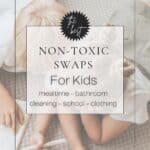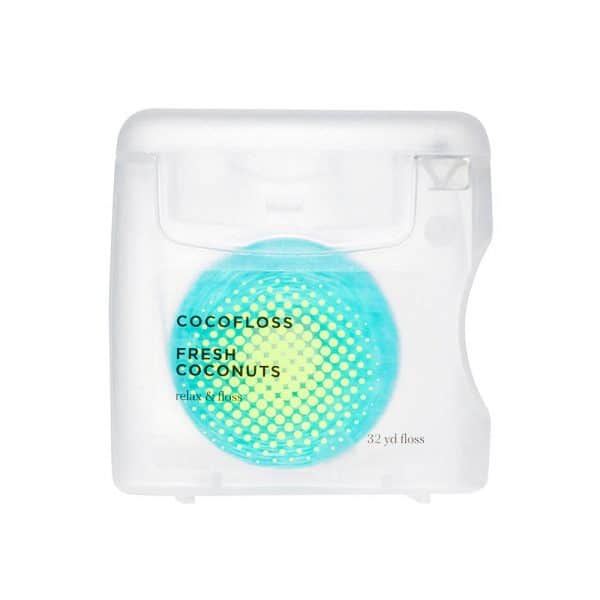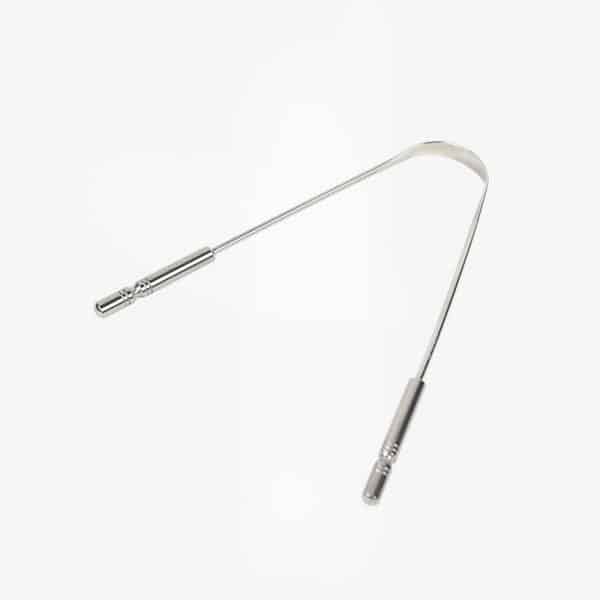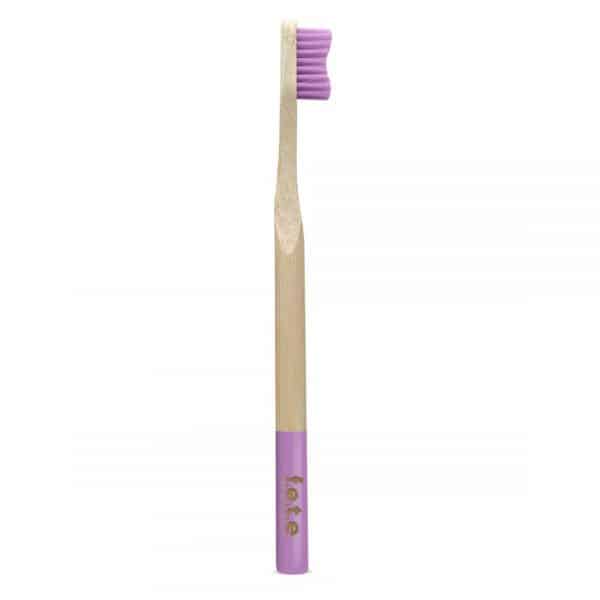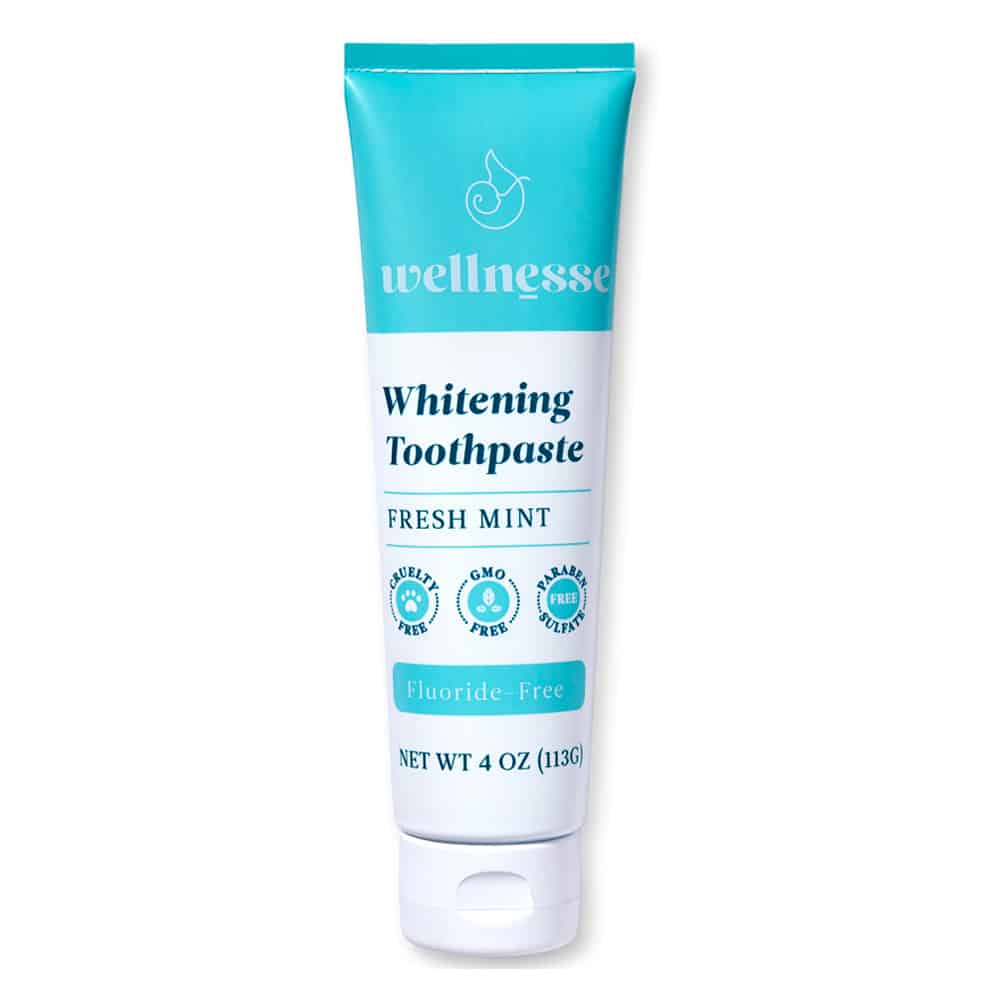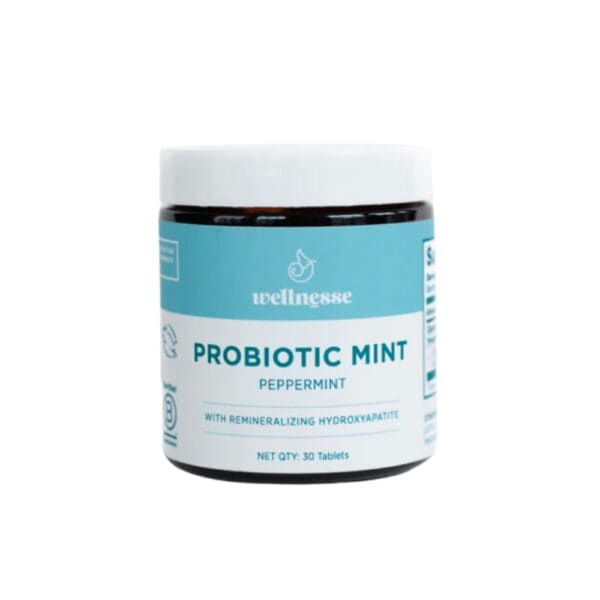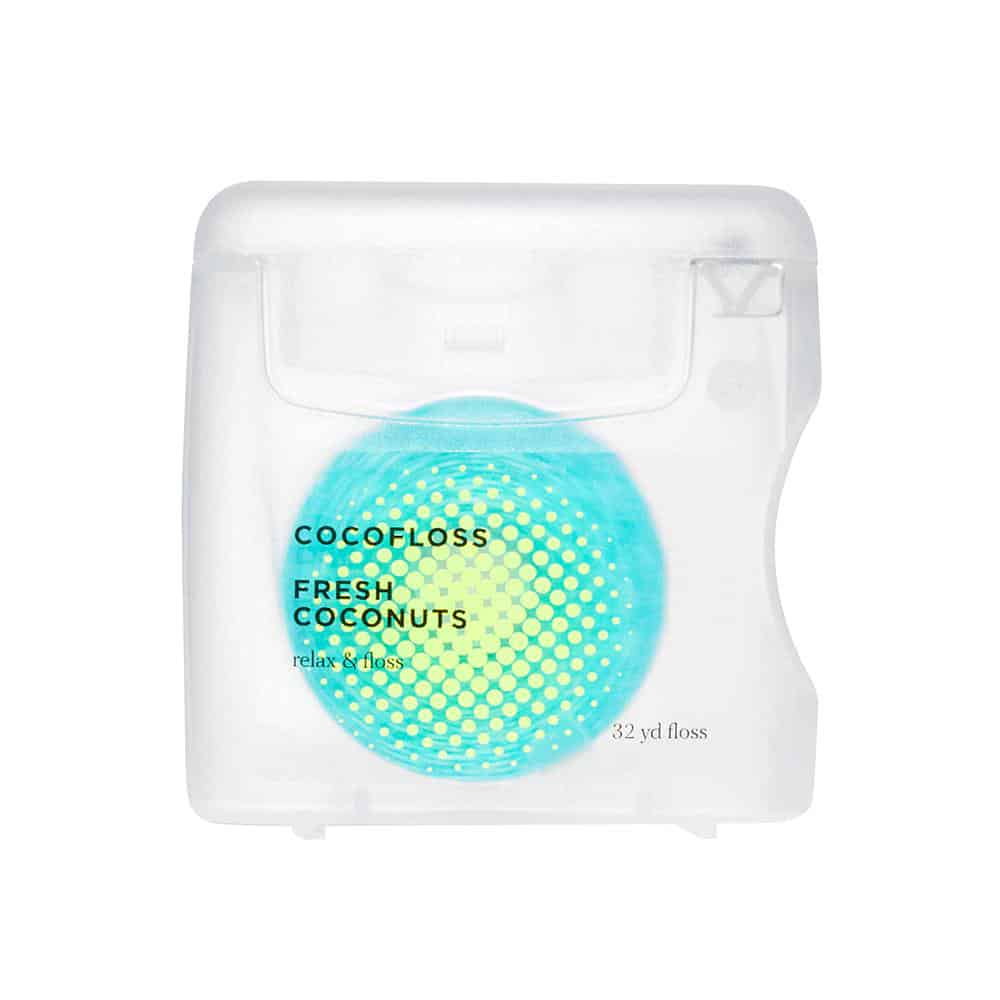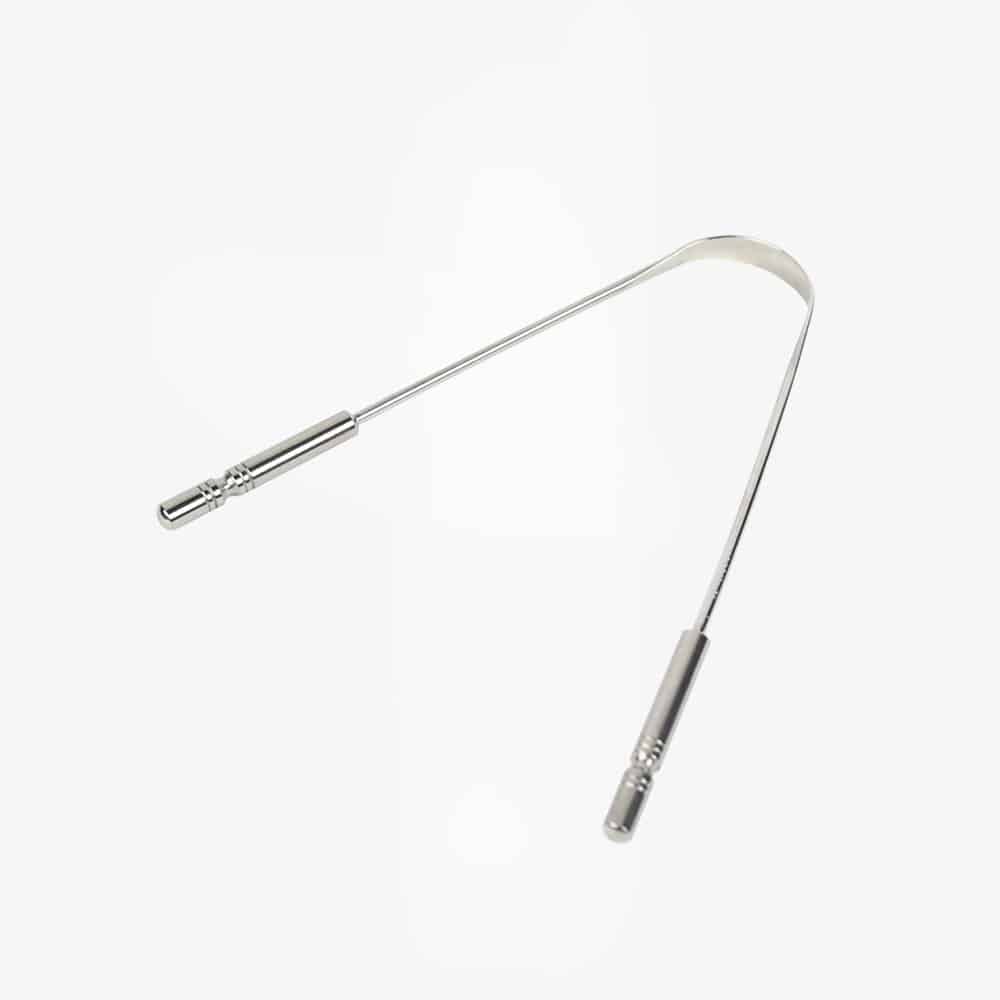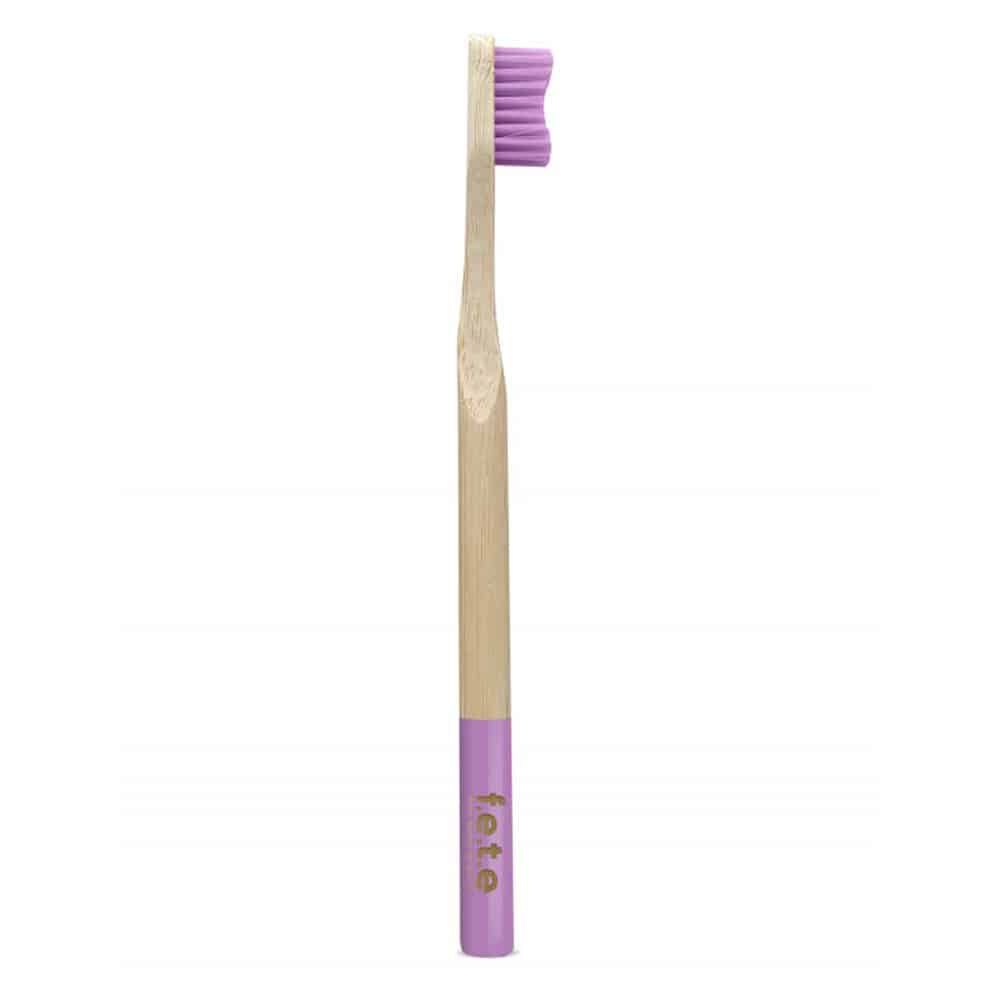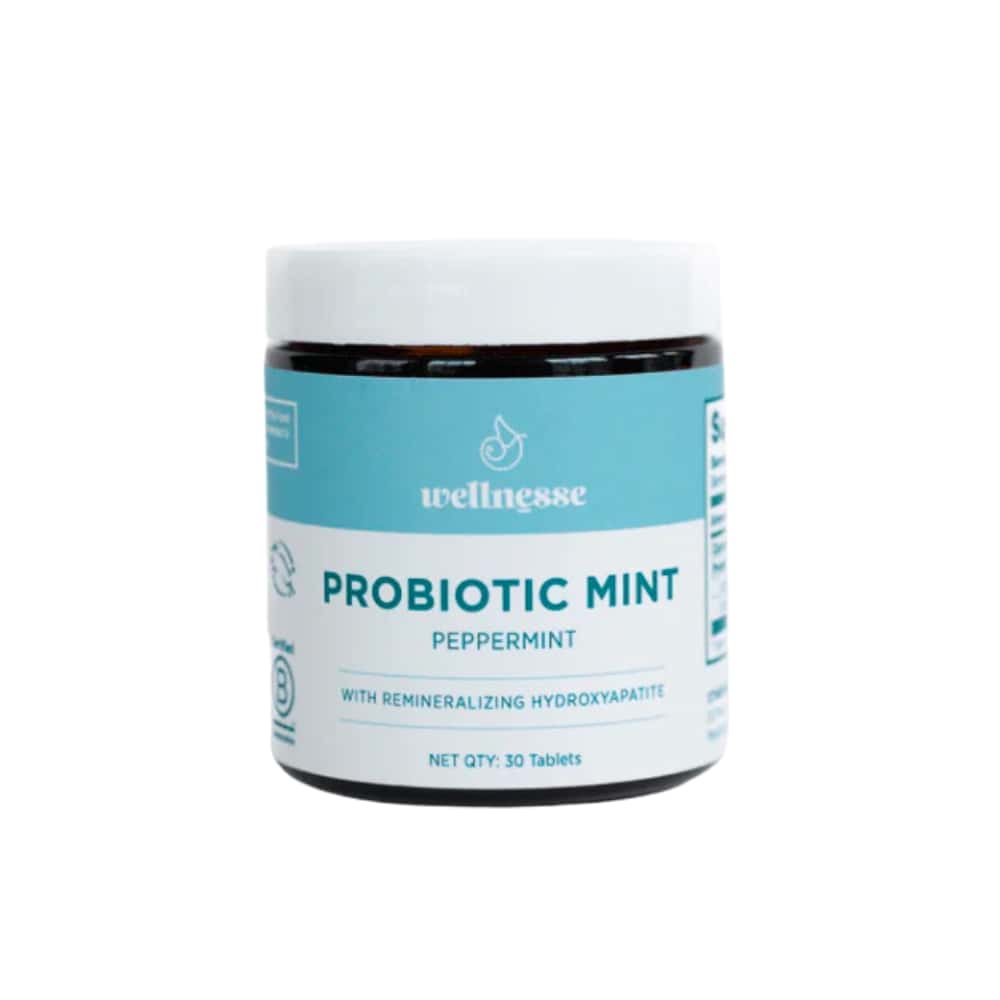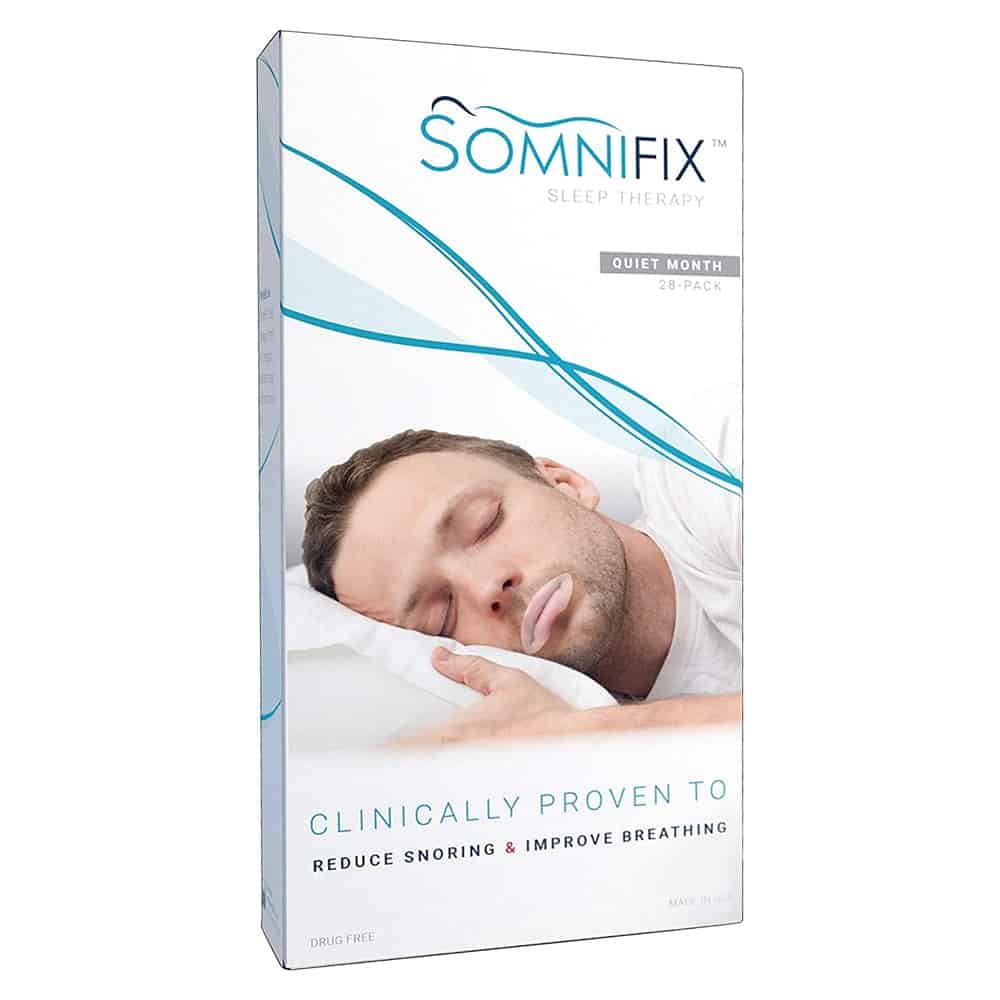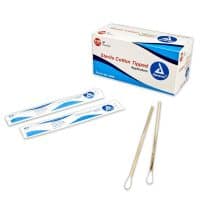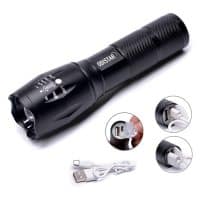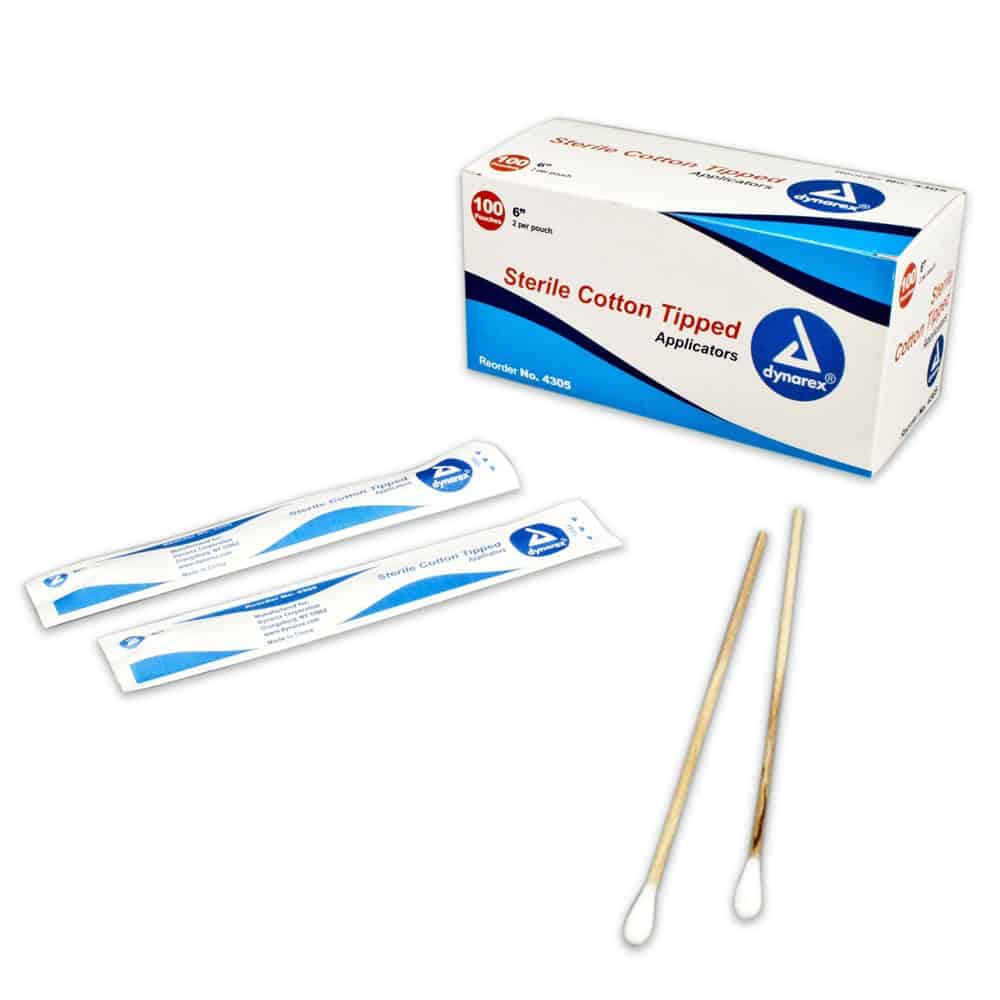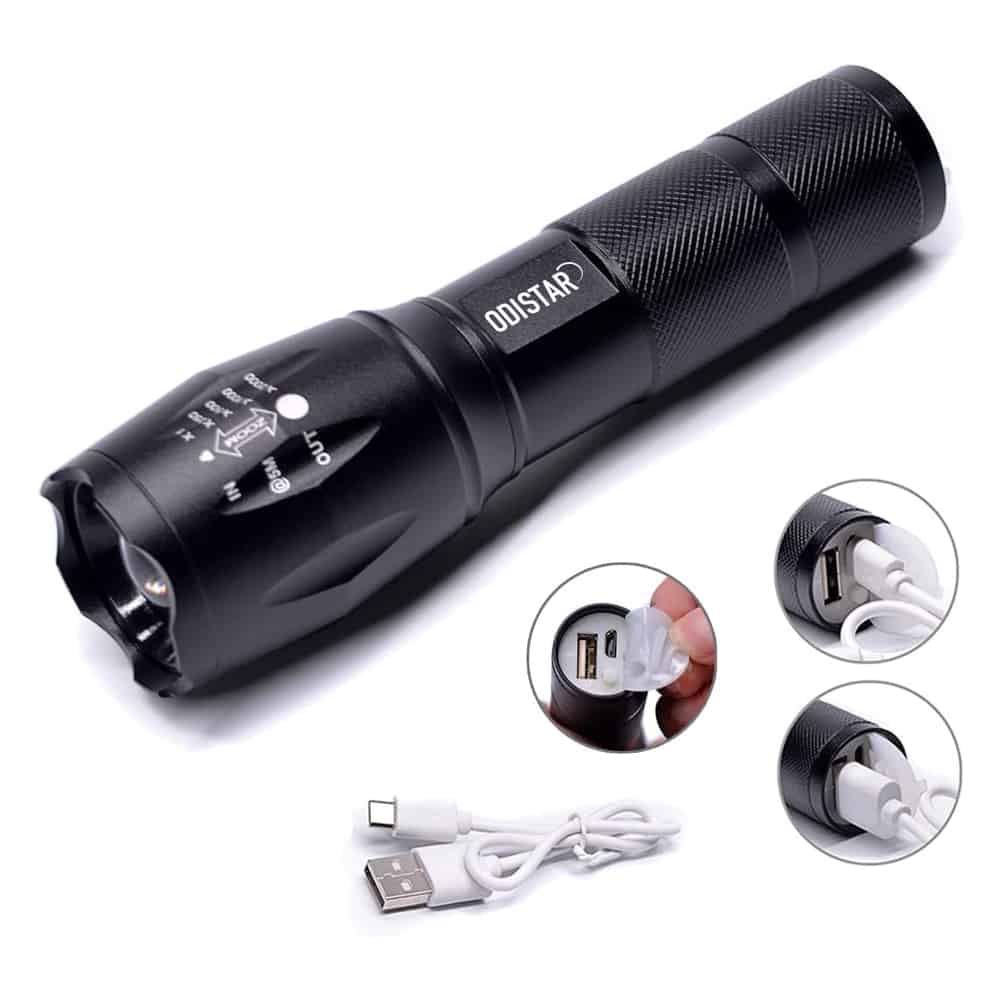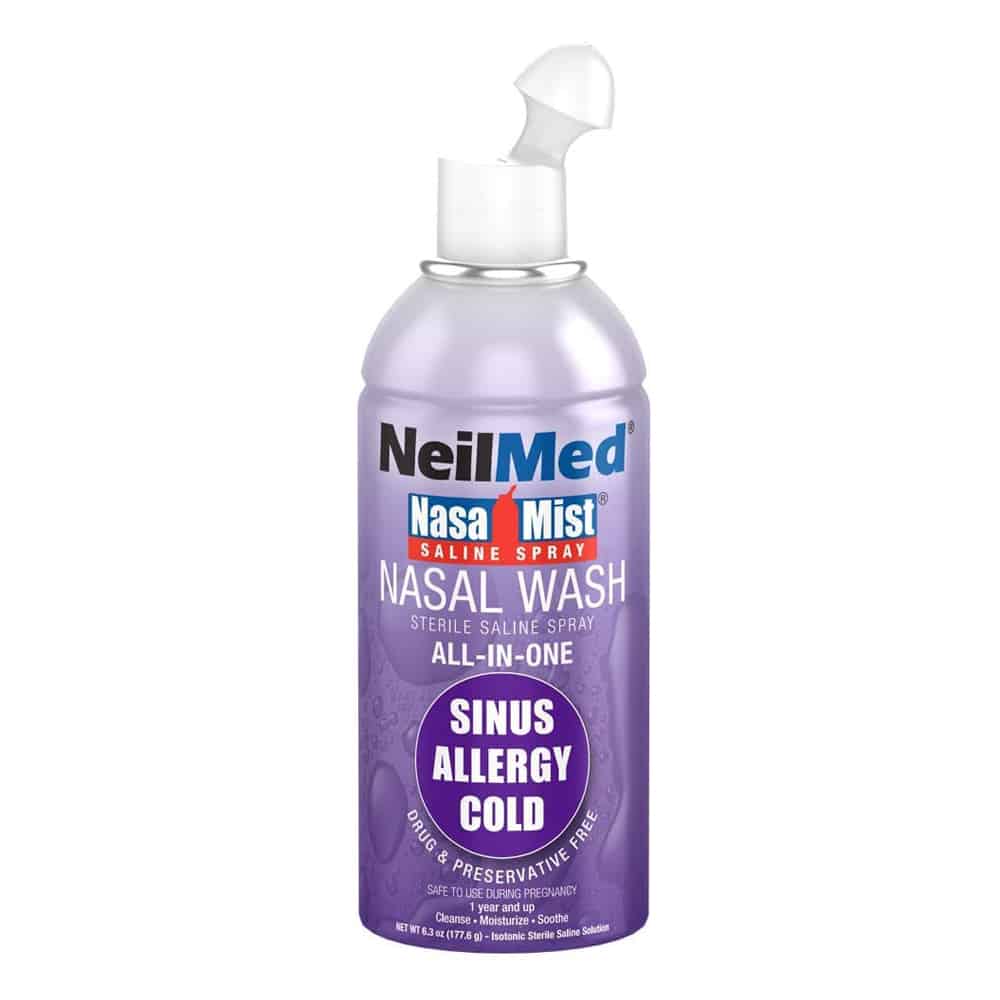Home Remedies For Bad Breath
Freshen your breath with these natural at-home tips while keeping your teeth and gums healthy. I also share my best tips for removing tonsil stones and keeping your nasal passages clear. Try these simple steps to maintain fresh breath and keep your mouth healthy and clean.
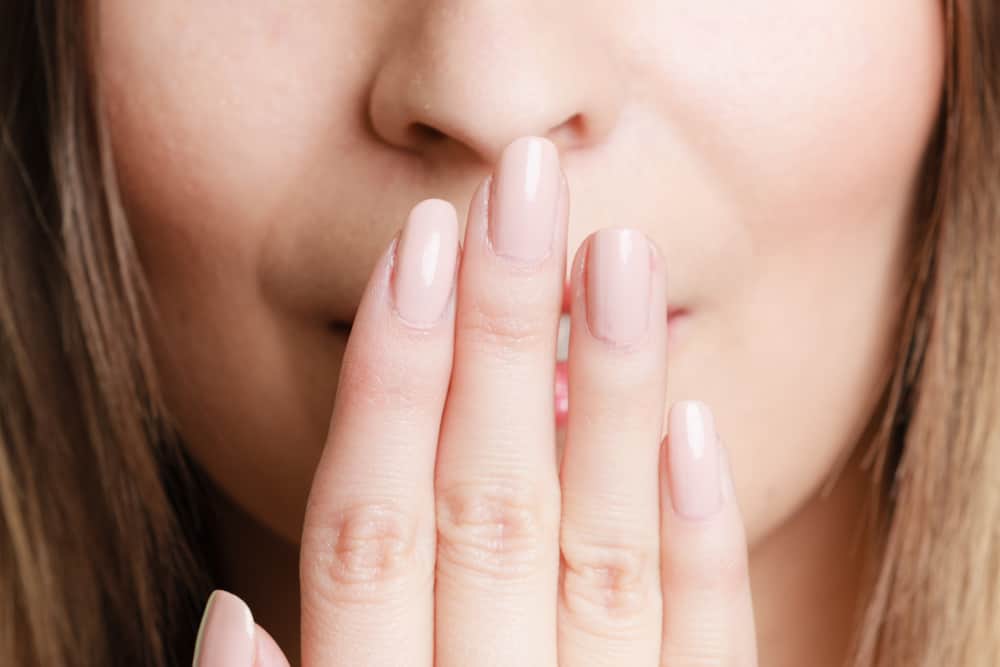
Disclosure: This post contains affiliate links, which means if you make a purchase through these links, we may receive a small commission at no extra cost to you.
Whether you have bad breath once in a while or you’re constantly offending others, there’s always a root cause. While it’s easy to pinpoint a garlic-laden meal, it’s harder to zero in on an ongoing problem like a medical issue. Most often though, the cause of your bad breath, or halitosis, lies right in your mouth.
The mouth is host to a whole population of bacteria, viruses and fungi. These living organisms make up the microbiome in your mouth (1). Bacteria feed off of the food we consume, and one of the by-products is a foul-smelling gas that results in bad breath.
If bad breath is a problem for you or someone you care about, I’ve got some natural suggestions for reducing your bad breath. But first, let’s look at the some of the reasons behind why your breath might smell.
Reasons For Bad Breath
- Food and Drink Bad breath can be caused by something you ate or drank – coffee, garlic, alcohol, or cheese are big offenders. A high sugar diet can also cause bad breath.
- Poor Oral Hygiene When you don’t brush or floss properly, or at all, bacteria feast on the particles of food left on your teeth and along your gumline and cause bad breath. Poorly fitting dental implants (or dentures that aren’t removed and cleaned often), yeast infections of the mouth, and dental caries (cavities) can all cause bad breath.
- Mouth Breathing Mouth breathing dries out your mouth, creating an environment where there’s not enough saliva to properly balance the pH of the mouth. The mouth becomes more acidic (2), and bacteria flourish and produce stinky byproducts, causing bad breath.
- Tobacco Bad habits like smoking and chewing tobacco cause bad breath.
- Tonsil Stones Approximately 10% of the population has tonsil stones (tonsiloliths), and I’m in this category. Tonsil stones are small, calcified masses found in the pits, crypts and pockets of your tonsils. They’re formed by bacteria, mucous and food particle build-up, and they produce a really foul smell. When I was a child, my dad (a dentist at the time) diagnosed me with tonsil stones. Please see a dentist or ear, nose and throat (ENT) doctor for proper diagnosis. I detail how I remove my tonsil stones in the section below.
- Sinus Issues Mucous in your nasal passage from allergies and sinus infections can cause bad breath.
- Other Health Conditions Acid reflux, ulcers, lactose intolerance, a sore throat, throat or mouth cancer, diabetes, digestive system and bowel disorders, liver disease, respiratory infection or lung cancer can all cause bad breath. Please see a dentist or doctor for ongoing halitosis issues.
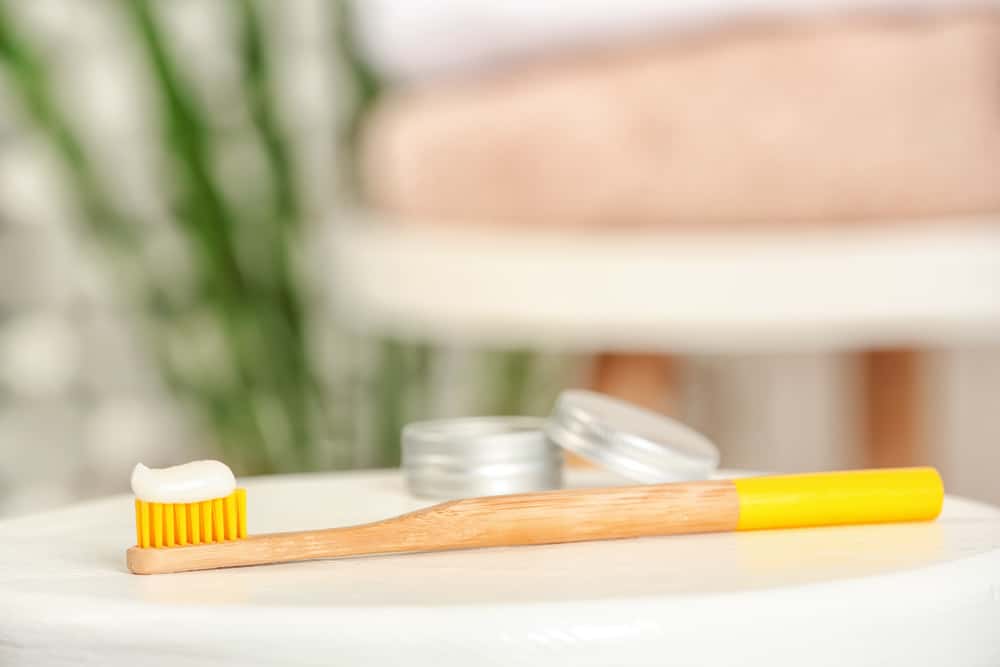
The First Line Of Defense Against Bad Breath
PRACTICE GOOD ORAL HYGIENE. This involves:
- Brushing after every meal and flossing at least once a day
- Scraping your tongue with a tongue scraper daily
- Thoroughly cleaning dentures or dental implants at least once a day and removing them at night
- Replacing your toothbrush every three months
- Getting regular dental checkups and cleanings
Try This Immediately If You Have Stinky Breath
- Floss your teeth and scrape your tongue.
- Follow this with a thorough brushing of your teeth and use a minty toothpaste.
- Chomp on a probiotic mint or gargle and swish with an alcohol-free mouthwash if your breath still smells.
- For more information on the oral hygiene products I like, read my posts on natural mouthwash, hydroxyapatite toothpaste, bamboo toothbrushes and PFAS-free dental floss.
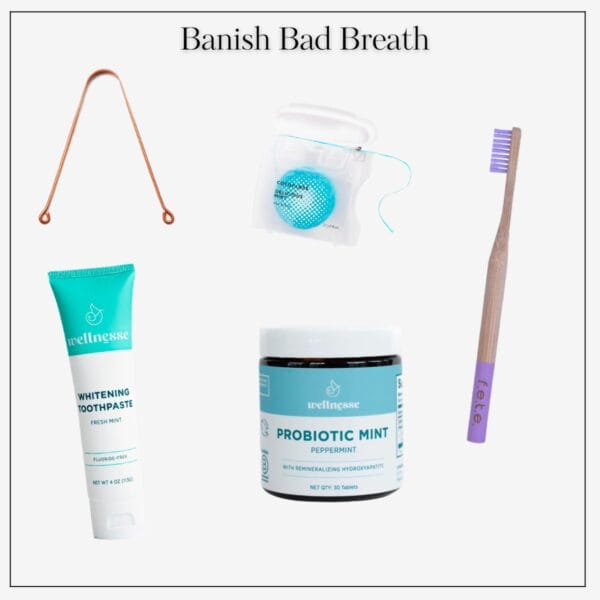
If You Don’t Have Your Toothbrush Handy And You Need A Quick Breath Fix
- Munch on crunchy produce like apples, celery, or carrots. Not only do these fruits and vegetables act as natural toothbrushes, they also stimulate production of saliva.
- Chew on a sprig of fresh parsley, basil, mint, or cilantro – the chlorophyll in these plants neutralizes odors and they release essential oils as you chew.
- Chew a piece of thoroughly washed lemon or orange rind- the citric acid in these fruits stimulates the salivary glands to produce saliva.
- Chew on a teaspoon of cloves, fennel seeds, or aniseeds. They contain antiseptic qualities that limit bad-breath causing bacteria, and they contain essential oils to scent your breath.
- Chew on sugarless gum.
Dietary Tips For Maintaining Fresh Breath
- Drink Lots of Water– Staying well hydrated helps you maintain a good level of overall body fluids (including saliva) and flushes food particles from your mouth.
- Drink Green Tea Daily– Green tea contains powerful catechins that promote dental health reducing inflammation and reducing biofilms (3).
- Reduce your sugar intake and avoid a high sugar diet.
- Refrain from eating garlic or onions for 24 hours if you’ve got a hot date planned.
Tips For Mouth Breathers
Try using mouth tape and practice breathing through your nose. If you feel like you can’t breathe through your nose, make an appointment with your doctor or a myofunctional therapist.
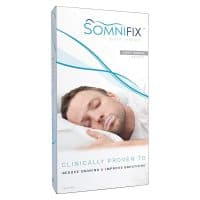
Tips For Removing Tonsil Stones
- As I mentioned above, make sure you’re diagnosed by a professional before removing tonsil stones (you wouldn’t want to mistake them for something else). To begin, wash your hands and make sure you’re near a mirror to see what you’re doing. The only object you should be using to extract tonsil stones is a sterile cotton tipped applicator. Do not use regular q-tips, your finger, a pencil or anything that is not sterile, or you’ll risk infection. For my method of extracting tonsil stones, prepare by having a small, strong beam flashlight handy for directing a beam of light on your tonsils (so you can clearly see what you’re doing). Do not place the tip of the cotton applicator on a dirty surface (your countertop is not sterile) – store it in the package until right before you’re ready to use it.
- With the sterile cotton tipped applicator in one hand and the flashlight in the other, aim the beam of the flashlight on your tonsils and gently probe your tonsil right next to a hollow area (crypt or hole) where you can see the tonsil stone. Do not stick the sterile cotton tipped applicator directly into a crypt or hole or you’ll risk pushing the tonsil stones further back. By gently pressing the tonsil area right next to the hole, the tonsil stone usually pops right out. Use the tip of the cotton applicator to remove the stone from your mouth.
- Sometimes I only need to extract tonsil stones every few weeks, sometimes every day if it’s allergy season. I’ve found that removing my tonsil stones alleviates my bad breath, along with flossing and brushing my teeth and scraping my tongue. This is not intended as medical advice. If you suspect an infection or have a fever, call your doctor right away.
Tips For Clearing Nasal Mucous
- Do you have bad breath during allergy season? The air passing through the sinus cavities can take on an icky mucous smell. Flush the sinuses with Neilmed Saline Wash to temporarily clear out the mucous. Please see an allergist if you suffer from more severe allergies.
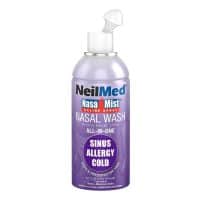
More Natural Dental Inspiration
This post is not intended as medical advice. Please see a dentist or doctor for proper diagnosis.

images via depositphotos
References
- Nelson-Dooley, C (2019). Heal Your Oral Microbiome: Balance and Repair Your Mouth Microbes to Improve Gut Health, Reduce Inflammation and Fight Disease. Berkeley, CA: Ulysses press.
- Weiler RM, Fisberg M, Barroso AS, Nicolau J, Simi R, Siqueira WL Jr. A study of the influence of mouth-breathing in some parameters of unstimulated and stimulated whole saliva of adolescents. Int J Pediatr Otorhinolaryngol. 2006 May;70(5):799-805. doi: 10.1016/j.ijporl.2005.09.008. Epub 2005 Oct 19. PMID: 16242785.
- Chatterjee A, Saluja M, Agarwal G, Alam M. Green tea: A boon for periodontal and general health. J Indian Soc Periodontol. 2012;16(2):161-167. doi:10.4103/0972-124X.99256

